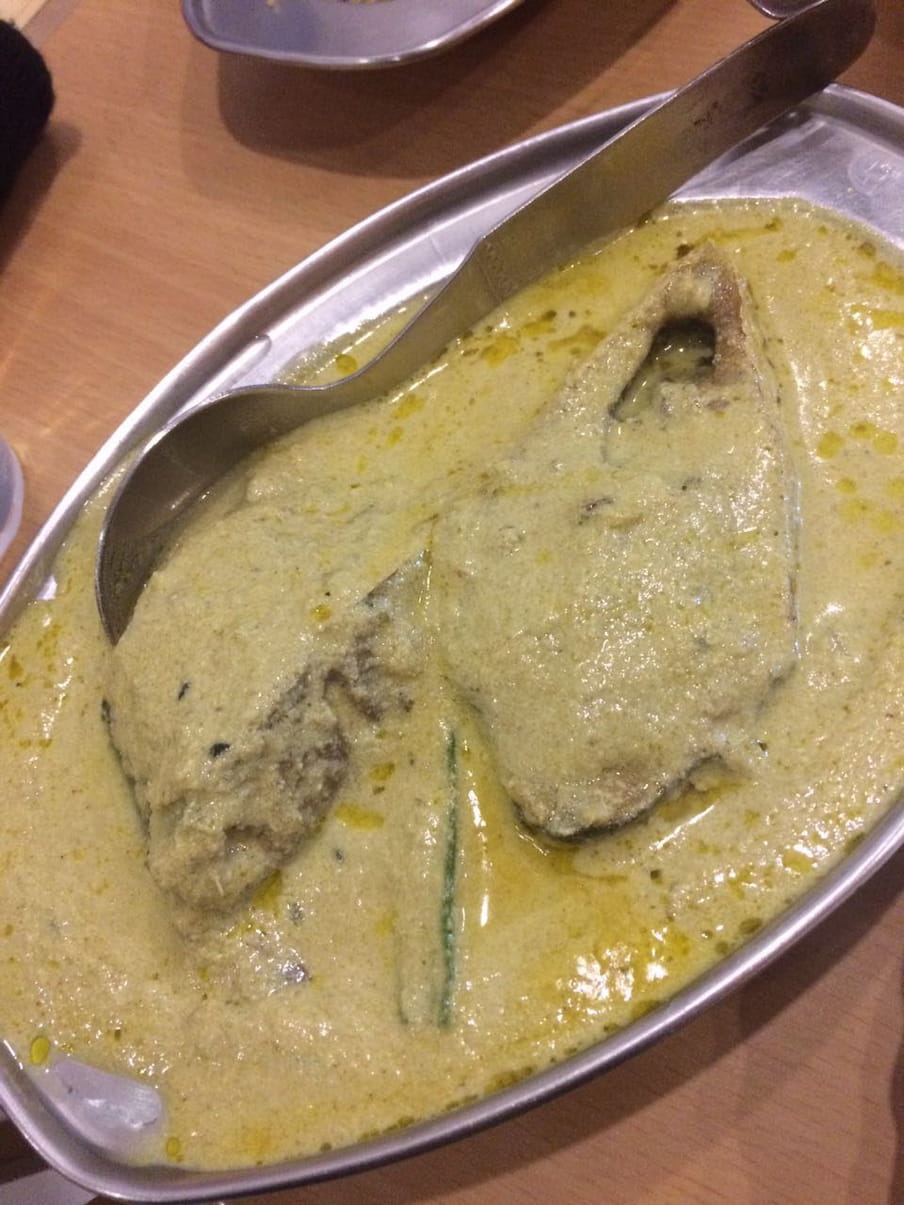Hi,
Some 18 years ago, I contracted jaundice. I have a theory that I became intolerant to hunger right after that.
My family knows that a hangry me is a very bad thing, and they are mostly patient with my tantrums. Increasingly though, I find that the jaundice story is an embarrassingly poor excuse for my prickly mood when I am deprived of the exact food I want - hilsa cooked in pungent mustard paste, or fatty pork cooked with ghost chillies and bamboo shoots, with heaps of rice.
The problem is, my wife is a strict vegetarian. We maintain separate kitchenware for veg and non-veg, as is customary in many Indian families. Our little boy is being trained as a vegetarian - at least till the time that the vegetarian side of his family has to change his diapers. In Mumbai, where we are spending this week, I discovered that my closest friend has turned vegetarian. Her husband, another close friend, has gone vegan. I feel guilty that my carnivorous tastes are incompatible with everyone else’s - a shameful weakness. Over dinner on Friday, I stress ate a massive plate of New Orleans-style seafood platter.
My wife understands how I feel. She is very particular that I never have to compromise with my non-veg cravings (she is the one who regularly checks and replenishes my meat supplies). But at home in Delhi, I often end up censoring myself. I lock myself in the kitchen when I am eating fish to sequester the smell. I am anxious to scrub away any trace of it from my hands. I have three different kinds of incense sticks to drive away any odours that escape the kitchen exhaust fan.

So, this has largely been the ambit of my thinking around the relationship between food and mood: self-centred, and marked by a resentment that I have to feel bad about eating the food that makes me feel good. All that changed a few days ago.
On October 16, every media outlet here gave prominent play to a disturbing headline: that India is ranked 102 out of 117 countries on the 2019 Global Hunger Index, which tracks undernourishment, child stunting, child wasting, and child mortality. We are hungrier than Pakistan and Nepal and just above Sierra Leone - all much poorer countries. Belarus, Cuba, Turkey, and a few other countries claimed the least hungry status.
Even as government officials claimed the index was flawed, I began to wonder what all this hunger was doing to the minds of India’s children. Could it not be related to the frightening depression levels among them? In 2017, reports suggested one in four Indian children was depressed. In Delhi, children from the age of four to 18 are said to be particularly vulnerable.
Feeling hangry is one thing. But is there proof that hunger plays a role in mental illnesses?
Last year, researchers from the University of Guelph in Canada declared that this is indeed possible. In their study, they gave rats a glucose blocker and found that this caused higher levels of the stress hormone cortisol. The rats also showed signs of stress and slow physical movements suggestive of poor mood. A dose of a common antidepressant helped alleviate their condition, proving that the symptoms weren’t caused by just muscle weakness because of low glucose intake.
Prof. Francesco Leri from the university’s department of psychology said, "I was sceptical when people would tell me that they get grouchy if they don’t eat, but now I believe it."
My search for studies linking hunger and depression among children in India got me nowhere. I am not sure if research has been done on this on an international level - please let me know if you are aware of any - but in my country one of the reasons for the apparent lack of scholarship on the subject, apart from its novelty, could be that "hunger" and "depression" are often part of completely separate social settings in the public discourse.
Hunger is seen as a function of poverty, resident in pockets of underdevelopment. Depression, if you go by the dominant narrative, strikes lonely, social media- and peer-pressure-stricken urban children. Could this be a very simplistic categorisation? I will keep digging and share what I learn with you.
Meanwhile, thanks to the good scientists of Guelph, I can confidently tie my depression and anxiety to my pathological relationship with food. It doesn’t help with the guilt and shame, but it is a better story than jaundice.
And speaking of guilt and shame - my series on understanding guilt got off to an exciting start. The next piece is a peek into the human brain, via some cool new research that shows how guilt and depression are interlinked. Please do read, and tell me if you want me to explore other facets of how guilt works, and how it is shaping our world.
Cheers,
Tanmoy

